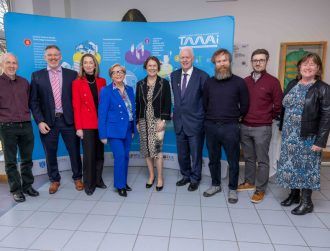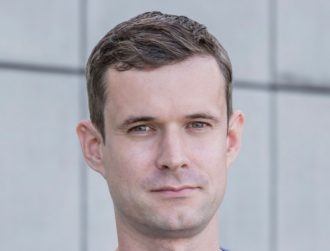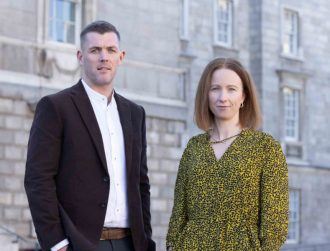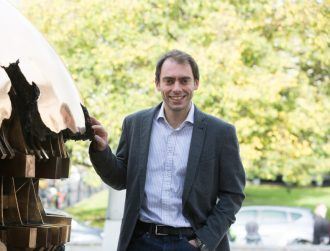
Image: © Lemonsoup14/Stock.adobe.com
The funding will support various research projects across Irish universities, including advanced data storage, smart vision tech and the causes of cognitive decline.
A batch of exciting research projects is receiving €16m from the Irish Research Council’s (IRC) Advanced Laureate Awards programme.
These awards are designed to help established researchers who have a record of original and significant research contributions in their respective fields. Projects from 16 researchers are being supported by the latest funding.
The projects aim to tackle various challenges across life sciences, humanities, physical sciences, engineering and social sciences. The awardees will each receive up to €1m in funding over a period of up to four years.
IRC director Peter Brown said there were 48 starting and consolidator Laureate awards issued last year and that the awards represent a “very significant investment of some €40m in frontier basic research”.
“Within the suite of advanced grant awards being announced today reside the potential for significant leaps forward in solving key problems and developing new understandings on topics that resonate strongly in our society and globally,” Brown said. “Smart cities, inflammation, migration, cross-border dynamics, immune cells, dementia, long-term memory and our linguistic past are just some examples of the themes connected with the projects that will be supported.
“Through these awards, the selected researchers will further develop their expertise and enhance their contribution nationally and internationally to addressing the challenges at the forefront of their respective disciplines.”
In 2024, the functions and activities of the IRC will be merged with Science Foundation Ireland (SFI), in a new Research and Innovation funding agency that will be led by Prof Philip Nolan, the SFI’s current director general.
The upcoming agency is part of Ireland’s national strategy to boost research and innovation. This strategy – Impact 2030 – was launched last year by Minister Simon Harris, TD and aims to build a more inclusive and engaged research and innovation system in Ireland.
Here are the 16 researchers that are being funded by the latest round of the IRC Advanced Laureate Awards.
- Dr Lynette Keeney from University College Cork (UCC) will explore how enormous levels of complex digital information may be stored through the production of ultra-compact data storage and new low-power device concepts.
- University College Dublin’s (UCD) Dr Kazim Buyukboduk will study variational properties of arithmetic objects. The goal is to pave the way for new theoretical techniques to tackle important mathematical problems.
- Dr Peter Corcoran from University of Galway will investigate ‘smart vision’ sensing technologies that can capture human actions without creating images or videos that violate data privacy.
- UCD’s Dr Robert Osburn will investigate new analytic, algebraic combinatorial and knot-theoretic techniques, which could have massive impact in areas such as quantum topology and theoretical physics.
- Maynooth University’s Prof David Stifter will create annotated, regionally diversified sets of texts of old Irish to examine if this language had dialects.
- Dr Anne Dolan from Trinity College Dublin will look at testimonies from Ireland during 1912 to 1923 to understand how Ireland restrained its wars and made its peace during and after its revolution.
- Dr Kevin Murray from UCC will look into Acallam na Senórach, an Irish narrative in the medieval literary cycle known as the Fenian or Finn Cycle.
- Dr Micheál Ó Siochrú from Trinity College Dublin will use newly discovered records to explore Ireland’s crucial role from the mid-17th century in England’s global expansion.
- Maynooth University’s Prof Mary Gilmartin will develop a ‘care-tography’ – a representation of existing practices of migrant care among communities, organisations and individuals.
- Trinity’s Prof Fiona Newell will investigate the functioning of touch, with a particular view to understanding how tactile abilities change as we age.
- UCC’s Prof Maggie O’Neill will conduct interviews with key stakeholders at borders of important sociological interest related to the key global challenges and politics of borderlands in Europe today.
- Dr Cathal McCrory from Trinity aims to explain what cellular or molecular causes may precipitate earlier ageing in people who are socially disadvantaged.
- UCD’s Prof Ken Wolfe will research further into his recent discovery that challenges the general thinking that the locations of genes along chromosomes in eukaryotes is random.
- Dr Colm Cunningham from Trinity will examine episodic elevations of the inflammatory molecule TNF alpha, which can be caused by infections, Covid-19, surgery and injury. It is believed this molecule can accelerate the process of longer term cognitive decline, including dementia.
- Dr David Finlay from Trinity will investigate how individual cells take up fuels at sites of disease within the body by attaching a light-emitting marker to the fuel after it has been transported into the cell. The goal is to better understand how immune cells cope with the difficult metabolic conditions in various diseases.
- Trinity’s Prof Mani Ramaswami will investigate how neurons determine long-term memory at a cellular level.
10 things you need to know direct to your inbox every weekday. Sign up for the Daily Brief, Silicon Republic’s digest of essential sci-tech news.






